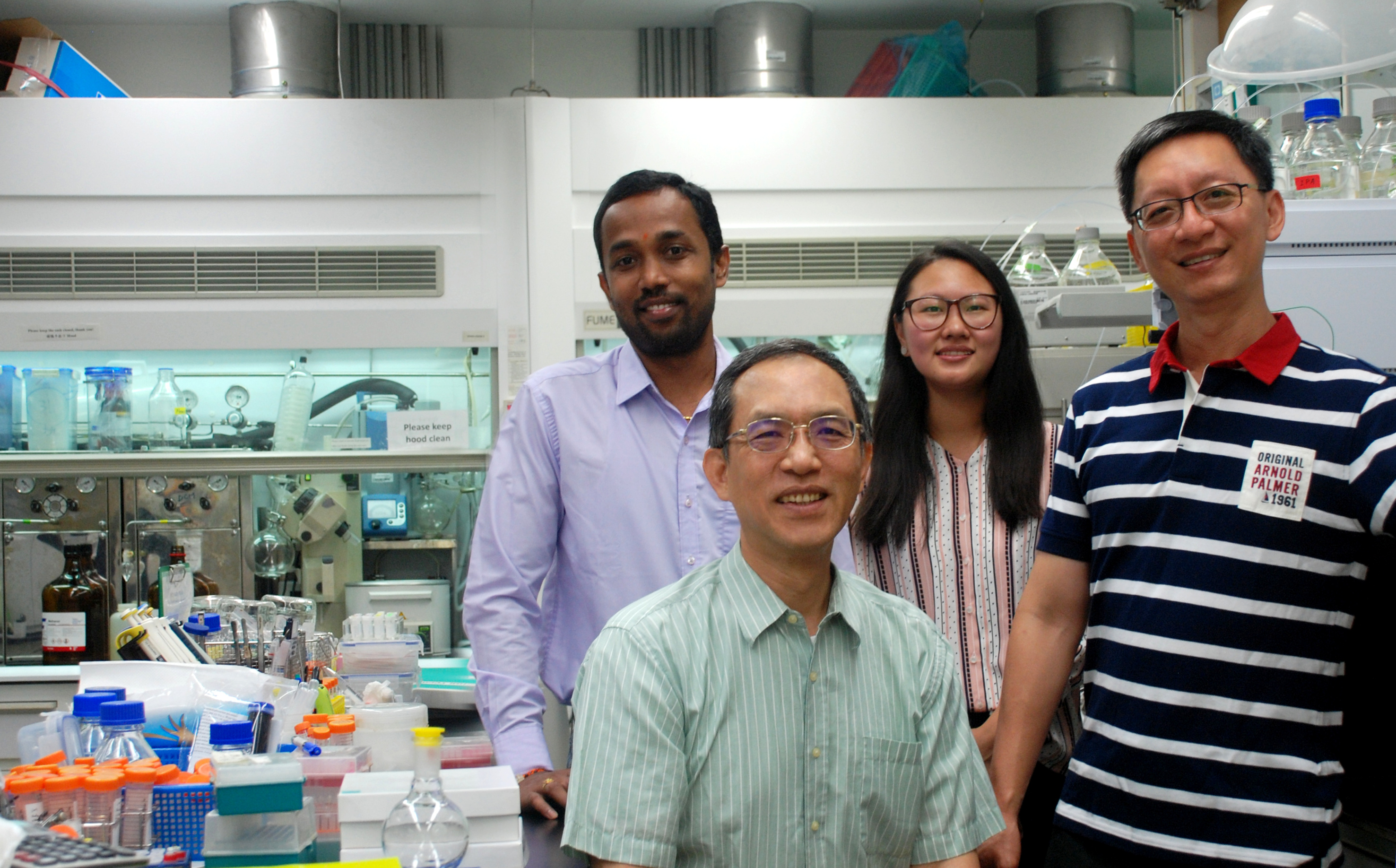As one of the important classes of organic molecules, carbohydrates are considered a class of sophisticated and mysterious kind. As more and more brave pioneers tapped into this unknown region, various glyco-molecules, glyco-proteins and glyco-lipids are found to play important roles in cell growth and diseases, thus, the sugars that we know of, and their large related family members generally called as saccharides, are becoming intriguing research topics.
However, to observe and identify them is one thing, yet to closely study them, one needs to have enough material to begin with. In order to help the science move forward, chemists started to find ways in making the glyco-containing molecules.
Back in 2007, Dr. Shang-Cheng Hung led a study group including Dr. Cheng-Chung Wang and Dr. Suvarn Kulkarni, and reported how their one-pot strategy had successfully streamlined the synthesis of carbohydrate molecules in Nature. By adding protective steps in the process, they could tweak the forming of glyco-molecules toward a desired direction, and thus proved the once seemingly impossible tasks realistically possible.
Years later, the three were invited by the Chemical Reviews journal to do a summary review of the progresses of this emerging scientific topic. Chemical Reviews is known to be authoritative and critical in reviewing all important latest and greatest research topics under the big umbrella of chemistry.
 |
| Team members(from left to right):Dr. Shang-Cheng Hung, Dr. Narayana Murthy Sabbavarapu, Pin-Hsuan Liao and Dr. Cheng-Chung Wang |
Each of the three scientists is now leading a team independently, once again, they teamed up collaboratively and finished a comprehensive eighty pages review detailing the current status of the one-pot methods. In the article “’One-Pot’ Protection, Glycosylation, and Protection-Glycosylation Strategies of Carbohydrates”, they examined 572 research articles, and provided insights into three categories.
“One-Pot Protection of Carbohydrates” is ways to design the protecting group strategy so that by blocking critical sites, chemical reactions are done exactly as one wishes, as opposed to the natural tendencies. “One-Pot Glycosylation” section summarizes all kind of methods to connect glycans one by one systematically, “Glycosylation and Protecting Group Manipulations in One-Pot” details how building blocks are made to help ease of the tasks.
They also touched base on the new automated strategies for oligosaccharide syntheses. Besides program-controlled assembly, there are more interests in automating stepwise glycosylation in solution phase.
“We are very interested in incorporating AI into the one-pot synthetic strategy, as a matter of fact, it’ll be one of our next tasks.”, commented by Dr. Hung.
Prof. Shang-Cheng Hung is currently the Director of Genomics Research Center at Academia Sinica, Dr. Suvarn S. Kulkarni is a professor in the Department of Chemistry in IIT-Bombay, and Dr. Cheng-Chung Wang is an Associate Research Fellow in the Institute of Chemistry at Academia Sinica.
This review article can be read online at: https://pubs.acs.org/doi/pdf/10.1021/acs.chemrev.8b00036